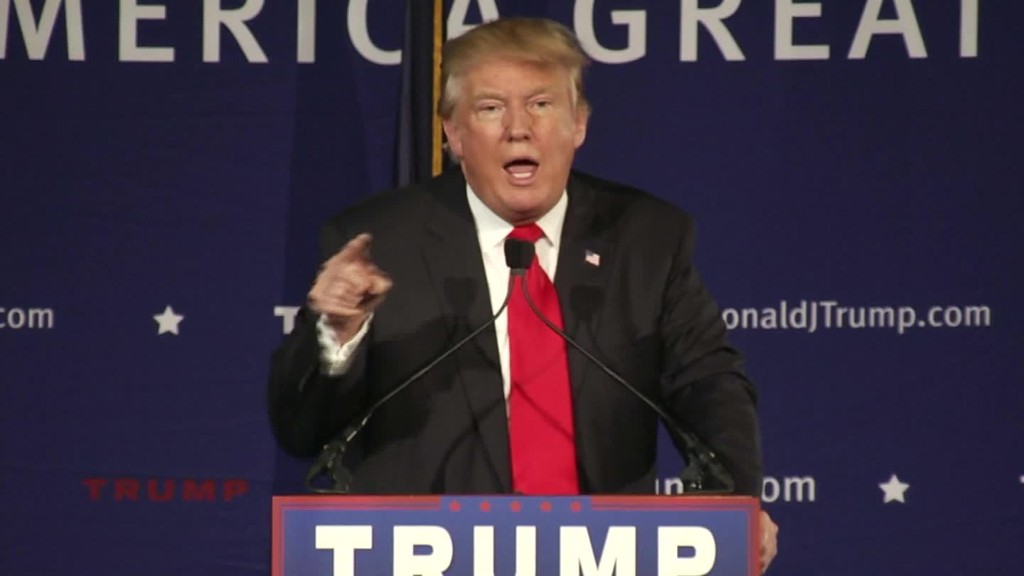
Donald Trump has called for a shutdown of the Internet in certain areas to stop the spread of terror.
In a speech at the U.S.S. Yorktown in Mount Pleasant, South Carolina, on Monday, Trump referenced the use by ISIS of social media as a recruitment tool. He recommended a discussion with Bill Gates to shut off parts of the Internet.
"We're losing a lot of people because of the Internet," Trump said. "We have to go see Bill Gates and a lot of different people that really understand what's happening. We have to talk to them about, maybe in certain areas, closing that Internet up in some way. Somebody will say, 'Oh freedom of speech, freedom of speech.' These are foolish people. We have a lot of foolish people."
Some totalitarian governments do it
The notion that the Internet could be shut off is not completely off base. North Korea does it. Some countries have been known to shut off Internet service to their citizens in times of crisis. Egypt restricted the Internet during the 2011 Arab Spring uprising.
Other countries block certain Internet services and sites. China is the most famous example, forbidding most social networking sites as well as websites that deal with subjects the government doesn't want its citizens to know about.
Most Western countries, including the United States, regulate the Internet very loosely. There are few restrictions about what American citizens can do and say on the Internet. Child pornography is one example of forbidden Internet activity in the United States -- Google is barred from linking to it, and websites cannot display images of it.
Why the United States can't do it
But a full-on "closing up" of the Internet "in certain areas" would be an impossible task. There are so many players with so much redundancy built into the system, that the Internet is not just something that can be turned off with a wave of a magic wand.
Virtually every part in the United States has multiple Internet service provider options.
Comcast, (CMCSA) Time Warner Cable (TWC) and the other major broadband companies don't overlap much. But Verizon (VZ), AT&T (T), Sprint (S) and T-Mobile (TMUS) all provide the same service to roughly the same areas. Satellite companies also provide Internet to most parts of the country.
Removing Internet service in certain areas of the U.S. would require those companies to turn off their cell towers and fiber networks, and to restrict satellite access to people living in those regions.
America can't shut off the Internet overseas either
Shutting down Internet service in foreign countries could be even more difficult.
Despite a common belief to the contrary, the United States does not control the global Internet. Servers on foreign soil serve up the Web and other Internet services to people living abroad.
So foreign Internet infrastructure would need to be disrupted or shut down to turn off service in certain areas -- already a tricky task made even harder if the countries and companies controlling those servers and cell towers abroad don't cooperate.
Whatever, Donald Trump wouldn't want the Internet shut off anyway. Then he couldn't tweet.

